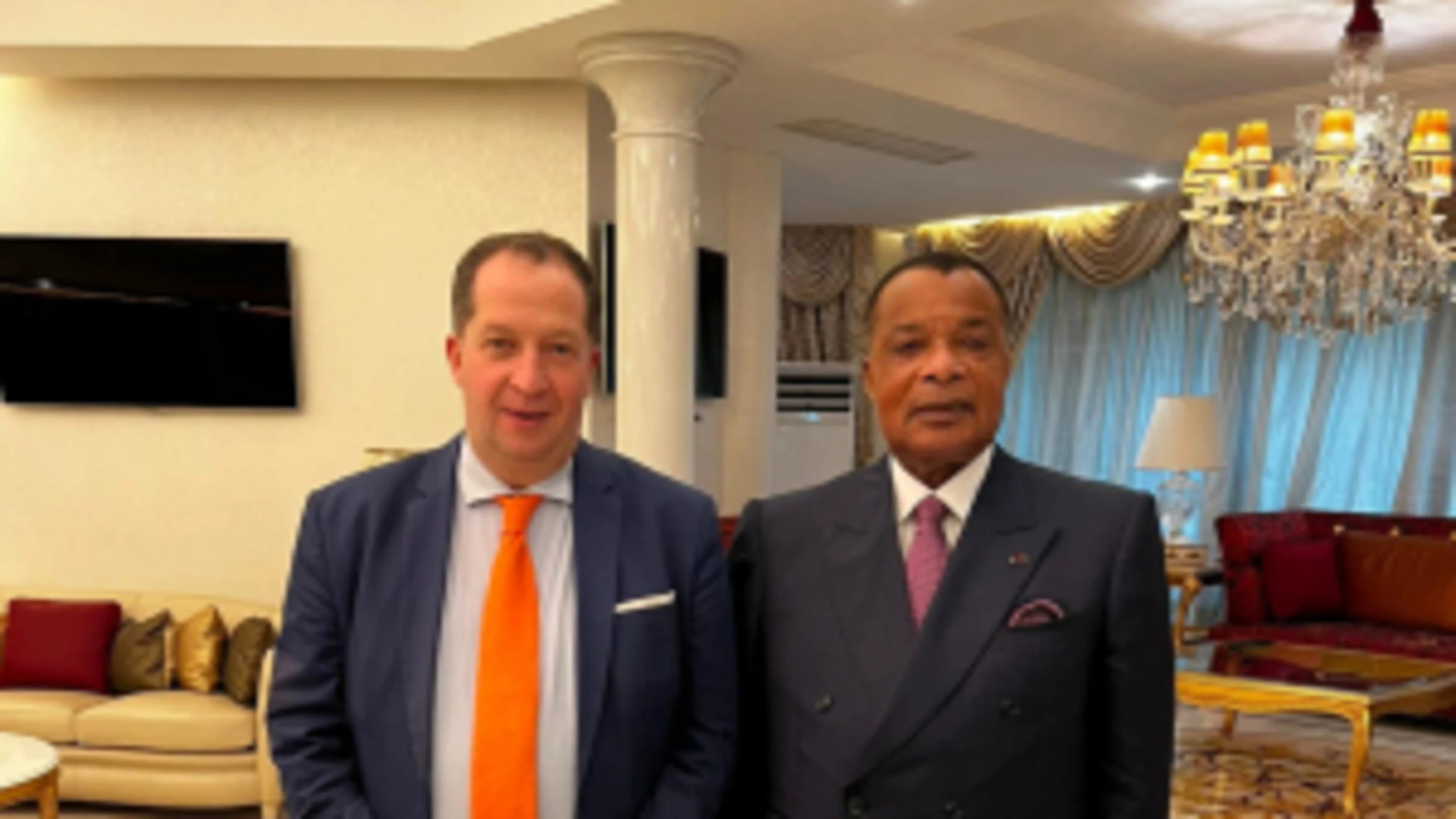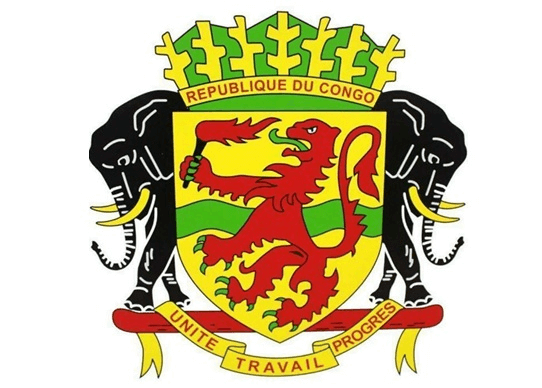
"Don't say Black Africa anymore! It's Green Africa that's rising!"
Denis Sassou-N'Guesso receives us in his official residence of Head of State, inhabited by majestic peacocks, on the right bank of the Congo River, protected by the shadow of the bridge of August 15, 1960, whose stays are the pride of Brazzaville, and within sight of Kinshasa, the large neighbouring city. The President of the Republic of Congo grants us a long interview. From the one his friend Alassane Ouattara nicknamed "the emperor" emerges a mixture of assurance and serenity forged by half a century of political fervor.
Interview with an African leader to whom the hottest news of the moment offers the opportunity to honor his solid reputation as chief mediator of African conflicts.
Opinion Internationale : Mr. President, thank you for receiving Opinion Internationale. A few topical questions to begin with. Central Africa is in the grip of strong tensions between the DRC and Rwanda. Do you fear a deepening conflict in the region
Denis Sassou-N'Guesso: We are not sparing our efforts. In particular, we hosted an important ministerial meeting of the United Nations Standing Advisory Committee on Security Questions in Central Africa and we are calling on the parties to show restraint.
You have been the head of the High Level Committee on Libya for ten years now. Do you really think that we will ever get out of the difficult situation in Lybia?
My Foreign Minister was recently in Tripoli to prepare a preparatory committee for an inclusive conference on national reconciliation in Libya, which should be held before this summer. If all goes well.
All parties have an interest in finding a way out of this Libyan crisis, whether it is Europe that wants to control its migratory flows or Africa that sees radical Islamism on the rise.
Congo is a secular state like France and Article 1 of your Constitution stipulates this. In Congo, don't you suffer from the rise of radical Islamism and jihadism which is causing bloodshed in many African countries and which, to put it bluntly, is denaturing Africa?
Certainly, but these movements have no place in our countries.. When we observe manifestations of jihadism on the borders of the DRC, Uganda, Mozambique, in the Lake Chad basin, in northern Cameroon, it is on our doorstep. That is why we attach great importance to resolving the Libyan crisis. Stability in Libya means stability throughout Africa.
You are among the African leaders who have taken a neutral position in the war that is ravaging Ukraine. Does this mean that you are reviving the non-aligned movement for which you were known for in the 1980s?
To tell you the truth, after the fall of the Berlin Wall and the collapse of the Warsaw Pact, we thought that the great military alliances, especially NATO, were finished. The Atlantic Alliance has remained. We have the impression that a Cold War atmosphere is being recreated between the United States and Russia. In these conditions, we seek to promote dialogue and negotiation. Africa will be able to propose ways out of the crisis.
Mr. President, in December, you participated in the US-Africa Summit in Washington. Doesn't this event illustrate, as a counterpoint, France's retreat in Africa? Indeed, France had not organized a summit with African heads of state for several years. Basically, aren't the Macron years those of a missed opportunity with Africa? From the very moment of his speech in Ouagadougou on November 28, 2017, did Emmanuel Macron not betray a very African rule of decorum by humiliating an elder in front of young people, and moreover a president of the Republic, Mr. Kaboré. Finally, did this fundamental moment of Emmanuel Macron's relationship with Africa not announce the rarefaction or even the complete discontinuation of Africa-France Summits at the level of heads of state?
That is your analysis, but it seems to me that these summits were held in the interest of France. If France decides to give them up, it is its own sovereign choice. It is up to France and the African States to give them real content. We will not say that Montpellier in October 2021 was a Summit. It was a meeting, a colloquium, a Forum, but it is an excess of language to speak of a Summit.
In the meantime - and this will not have escaped the attention of French leaders - other States are organizing these meetings at the highest level: China, Russia, Turkey, Japan, India.
And last December, in Washington, no one gave orders to anyone. Joe Biden put $55 billion on the table for African development over the next three years and supported Africa's request for a permanent seat on the UN Security Council and the G20.
The relationship between you and France, Congo and France, is a bit of a "I love you, I love you not"?
Our history is rich and sometimes tumultuous. I remember Nicolas Sarkozy's speech in Dakar ["the African man has not gone down in history enough" he said,
editor's note], or the Francophonie Summit in Kinshasa at the end of 2012 where President François Hollande came and almost ignored the existence of President Kabila in his own country.
Do the lawsuits on ill-gotten gains also tarnish this relationship?
They are more the business of certain newspapers and NGOs than a serious matter.
It is always useful to reread some classics (from Spinoza to Montesquieu) to remember that anarchy is the enemy against which political order is instituted and strives to maintain itself. Today, order is stability. How do you judge, on the one hand, the military coups that are shaking West Africa? And on the other hand, does the stability that is your main achievement as head of the Congo justify your staying in power for so many years?
I do not support coups. The military force can come to power but democratically - and not by force. Africa is looking for a way between a sometimes anarchic democracy and orderly governance. If the people wish to renew their confidence in their leaders for several terms, it is their most legitimate right.
I say it in all my speeches: our countries under construction need peace and stability. The most stable countries are those that are the most successful in their development: I would mention, for example, Côte d'Ivoire, Cameroon and Morocco.
What are your priorities for the next few years?
We have to forget about oil! The acceleration of infrastructures, the development of a sovereign agriculture and electrification are our future. For example, the parliaments of Congo and the Democratic Republic of Congo ratified in 2022 laws allowing the construction of a road bridge that will link Brazzaville to Kinshasa. Similarly, the deployment of free trade zones in Africa will contribute to our development.
Similarly, the Fonds bleu pour le Bassin du Congo (Fund for the Congo Basin) is moving forward: studies have been conducted. The Development Bank of the Central African Stateshas been selected to manage the projects. We are waiting for the support of the international community. And the main battle, of course, will be the protection and development of our forests, the second lung of Africa. Africa should no longer be called Black Africa but Green Africa.
Is the future the blue and green Congo?
Since the 1980s, I have been fighting for this and we have been planting artificial forests. We have succeeded in taking cuttings and cloning eucalyptus trees, making it possible to reproduce a million of them from a single tree. A law obliges all Congolese to plant a tree every November 6, on the occasion of the National Tree Day. With PRONAR (Programme National d’Afforestation et de Reboisement, National Afforestation and Reforestation Program), we aim to reforest 1 million hectares within the next ten years.
Will you be attending the One Forest Summit finally organized by France and Gabon in Libreville in March?
The President of the Congo Basin Climate Commission, who I am, will be going to Libreville. I remind you that during the COP 27 in Sharm-el-Sheikh in Egypt last November, I launched the idea of a decade of reforestation and reforestation.
France and the Congo have one thing in common: more than a third of France is covered by forests. And Congo even more so. Could French farmers, who are suffering more and more from drought and global warming - to the point of questioning their survival - diversify their income by coming to Congo to help you develop your food and natural resources?
French farmers are welcome! For example, our Brazilian friends have helped us to introduce cattle breeds. But tell me, Mr. Taube, I see that you are wearing an orange tie and orange socks. Is this a sign of your support for the orange revolution in Ukraine?
It could be, but it is in fact a symbol of respect for women. UN Women organizes every year the Orange Day to fight against violence against women.
Do you know the Mouebara law?
No, Mr. President.
It is the law named after my mother, Emilienne Mouebara, dedicated to the fight against violence against women in the Republic of Congo. We passed it in 2022.
You are a soccer lover. Did you meet King Pele, who died in December?
He came to play twice with his club Santos against our national team.We fought back well. But what a man!
You are a Real Madrid aficionado. What do you think about what’s happening with Zinedine Zidane in France?
I would advise him to let it happen but he is wise enough not to need our advice
Source : Opinion Internationale
Date : 27-02-2023
